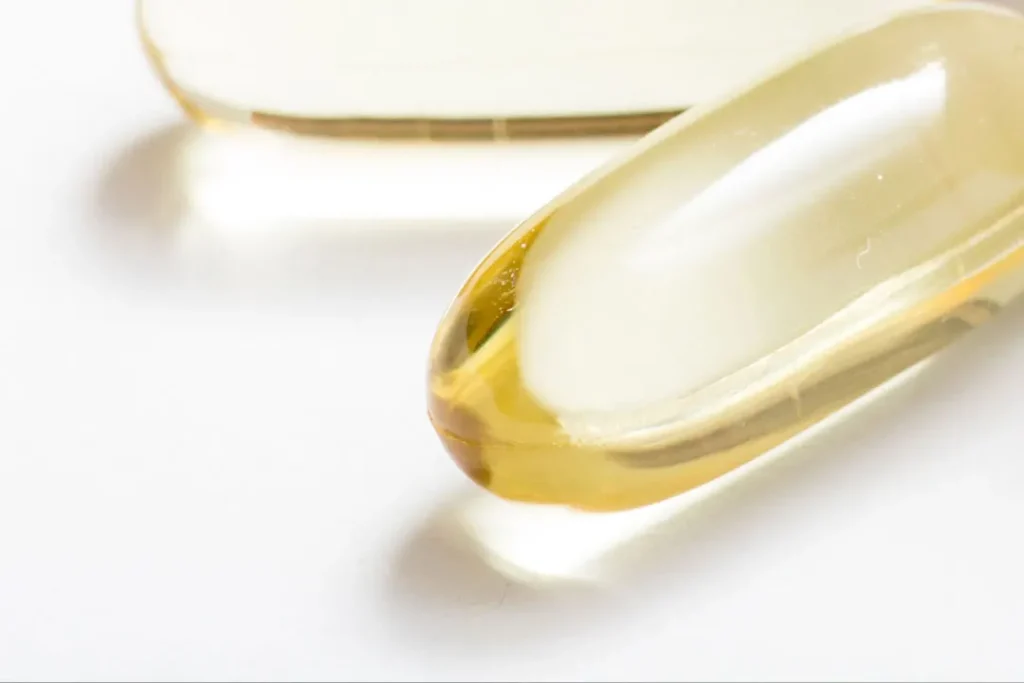Emu oil is a fascinating natural product made from the fat of the emu (dromaius novaehollandiae), a native bird of Australia. Due to its possible health advantages, it has drawn interest from both the scientific community and the general public. Its unusual chemical makeup, which is abundant in vital fatty acids, antioxidants, and other bioactive substances, accounts for its appeal. This article examines the properties of emu oil, the health advantages it offers, the recommended dosage, any potential side effects, drug interactions, and its responsible use as a dietary supplement.
You May Also Like:
Should You Try CBD for Focus? Here Are the Facts.
CBD for Concentration: 3 Epic Benefits that Boost Your Focus
Emu Oil: Benefits, Dosage, Side Effects, Drug Interactions, and Other Important Information is an original (NootropicsPlanet) article.
Nature of Emu Oil
The emu’s adipose tissue is used to make the emu oil. The fat is refined and sterilized throughout the extraction process to create a creamy substance that ranging from off-white to yellow in hue. Emu oil is a popular choice in the cosmeceutical and nutraceutical sectors since it is odorless, non-greasy, extremely penetrating, and well-tolerated by most patients.
Health Benefits of Emu Oil
Emu oil is known for having various health advantages. According to research it also has many therapeutic uses for gastrointestinal problems, skin conditions, inflammation, and metabolic ailments. Emu oil can be used in dermatology to treat disorders including eczema, psoriasis, and burns due to its strong penetrative abilities and anti-inflammatory effects. Emu oil has wound healing properties that encourage skin cell migration and proliferation.
Emu oil has many potential properties for gastrointestinal health that reduce inflammation brought on by conditions like gastritis and inflammatory bowel disease (IBD). Studies have also looked into emu oil’s potential in aiding metabolic illnesses including diabetes and hyperlipidemia. This is where its anti-inflammatory and antioxidant qualities can slow the condition’s progression.
Chemical Composition of Emu Oil
Emu oil has a distinct chemical makeup that may be the key to its health advantages. Monounsaturated fatty acids (MUFAs), especially oleic acid, make up the majority of the fatty acids in emu oil and make up around 70% of its total fatty acid composition. The remaining percentage is made up of a lower amount of saturated fatty acids (SFAs) and polyunsaturated fatty acids (PUFAs) such as linoleic acid and alpha-linolenic acid. A considerable supply of bioactive substances, such as terpenes and other anti-inflammatory substances like vitamin E and carotenoids, can also be found in emu oil.

Physiological Properties of Emu Oil
Emu oil exerts its health advantages by reducing inflammatory reactions and improving skin barrier integrity through multiple physiological processes. Oleic acid, a MUFA that is prevalent in emu oil, has strong anti-inflammatory effects. It can reduce both the synthesis of inflammatory cytokines and the activation of pro-inflammatory pathways. Similar to this, the omega-3 and omega-6 PUFA found in emu oil are essential for maintaining cell membranes and controlling immunological responses.
Emu oil also contains natural antioxidants that aid in reducing oxidative stress, a major ingredient in the etiology of many chronic illnesses. By removing dangerous free radicals from the body, these antioxidants can stop cell and tissue damage.


Optimal Dosage of Emu Oil
Emu oil dose recommendations are complicated since they depend on many variables, including your age, health status, and its intended use. A few drops administered topically a few times each day to the afflicted region are often regarded as safe and beneficial. It is advised to start with low dosages for internal use—between 500 and 1000 mg daily—and then increase or decrease as needed based on your body’s tolerance and response. However, it is advised to speak with your doctor before beginning emu oil supplements due to the minimal research that has been done on emu oil.
Side Effects
Although emu oil is usually harmless, side effects can include gastrointestinal disturbance, such as diarrhea or stomach pains, especially when used internally. If you have any sensitivities to items made from birds, you should use caution.


Potential Substance Interactions of Emu Oil
Currently, some interactions have been documented in the scientific research. However, due to its high omega-3 fatty acid content, which can amplify the effects of certain medications, if you are taking medication, especially those with anticoagulant characteristics, you should speak with your healthcare professional before beginning to use emu oil.
Responsible Use
Emu oil offers a plethora of ancient wisdom and cutting-edge research. Its distinctive fatty acid and bioactive chemical makeup can provide therapeutic advantages, especially for metabolic illnesses, skin conditions, and inflammatory conditions. Emu oil can be used as a nutritional supplement, but doing so responsibly necessitates taking into account your specific health situation, following dose instructions, and keeping an eye out for any side effects that might occur.


Emu Oil:
Conclusion
Emu oil is a rare supplement to take and it is rarely used in dermatological procedures. Extensive studies should be conducted in the future to validate its health benefits, understanding its properties more clearly is crucial, and it is important to follow the exact dose recommendations your doctore recommends to you or prescribes to you. Emu oil should be used in conjunction with a healthy diet and active lifestyle, much like other supplements, rather than in place of all-encompassing medical treatment. An additional benefit of this supplement is hair growth, so if you also are hoping to benefot from this, emu oil may be right for you.
References:
- Emu Oil: Composition, Properties, and Therapeutic Potential. Retrieved from: https://www.ncbi.nlm.nih.gov/pmc/articles/PMC4277687/
- Emu Oil: A novel therapeutic for disorders of the gastrointestinal tract? Retrieved from: https://journals.lww.com/jcge/Abstract/2013/05000/Emu_Oil__A_novel_therapeutic_for_disorders_of_the.13.aspx
- Emu Oil Reduces Small Intestinal Inflammation in the Absence of Clinical Improvement in a Rat Model of Indomethacin-induced Enteropathy. Retrieved from: https://journals.lww.com/ajg/Abstract/2012/12000/Emu_Oil_Reduces_Small_Intestinal_Inflammation_in.26.aspx
Important Note: The information contained in this article is for general informational purposes only, and should not be construed as health or medical advice, nor is it intended to diagnose, prevent, treat, or cure any disease or health condition. Before embarking on any diet, fitness regimen, or program of nutritional supplementation, it is advisable to consult your healthcare professional in order to determine its safety and probable efficacy in terms of your individual state of health.
Regarding Nutritional Supplements Or Other Non-Prescription Health Products: If any nutritional supplements or other non-prescription health products are mentioned in the foregoing article, any claims or statements made about them have not been evaluated by the U.S. Food and Drug Administration, and such nutritional supplements or other health products are not intended to diagnose, treat, cure, or prevent any disease.
